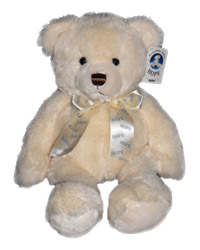 My sister-in law’s father is a strong colon cancer survivor, having courageously stared the illness straight in the eyes. As too many people know, cancer of any kind doesn’t just affect the diagnosed; it irreperably changes an entire family. So the least my husband, my dog and I could do was walk 5 km in support of Colon Cancer Canada’s annual Push For Your Tush. “Because,” my eight year old niece explained to me when she asked me to come, “That’s where you get colon cancer. In your tush.” So wise. I wanted to pinch hers.
My sister-in law’s father is a strong colon cancer survivor, having courageously stared the illness straight in the eyes. As too many people know, cancer of any kind doesn’t just affect the diagnosed; it irreperably changes an entire family. So the least my husband, my dog and I could do was walk 5 km in support of Colon Cancer Canada’s annual Push For Your Tush. “Because,” my eight year old niece explained to me when she asked me to come, “That’s where you get colon cancer. In your tush.” So wise. I wanted to pinch hers.
Arriving at the event, I was greeted by a long table of adorable plush, brown-nosed, ribbon-tied teddy bears for sale, named Wendy Bears. I was  so touched, it only being my first year participating in the walk and all. Surely there must be far worthier people than me to honour, I thought. There were. I was moved to learn that the bears are, in fact, named for hockey legend Darryl Sittler’s late wife, Wendy, who tragically passed away from colon cancer in 2002. Apparently, not everything is about me. [You can order these sweet bears here: http://www.coloncancercanada.ca/wendy_bear.php]
so touched, it only being my first year participating in the walk and all. Surely there must be far worthier people than me to honour, I thought. There were. I was moved to learn that the bears are, in fact, named for hockey legend Darryl Sittler’s late wife, Wendy, who tragically passed away from colon cancer in 2002. Apparently, not everything is about me. [You can order these sweet bears here: http://www.coloncancercanada.ca/wendy_bear.php]
My eyes welling with tears over Mr. Sittler’s loss and his ability to grow hope out of pain, I wondered what my dear husband would do if he were to lose me. Start a 10 km walk? Sell Wendy Cats?
“‘I’d probably move to Montezuma and live on the beach,” he said, shrugging.
“Why wait?” I asked, “Maybe you should go now.”
I stomped on ahead, angry at his lack of devastation over my hypothetical death and his hypothetical failure to honour my hypothetical memory. Can you believe this guy!?
I met up with my brother, enjoying his company until at the 1.5 km mark all the people ahead of us began turning around, walking back our way.
“Is that it?” I asked, “Did we cure it? Walk over?”
Someone had placed the signs incorrectly along the path leading to a dead end, turning our 5 km walk into a 3 km one. I hoped these weren’t the same people researching a cure. Walking back to the starting point with my brother, I told him about how guilty I feel for having never organized anything in honour of our lovely mother, who died of cancer eight years ago. In all those years, I have never raised even a single penny for adrenal cancer. I’ve put it all towards therapy. After my mother’s death, I had all these big ideas, all these ways I wanted to get people together to raise money and remember her, but I’ve never executed a single one. I buy daddodils in March and call it a day.
My mother herself, so level-headed, so able to see a bigger picture, maintained a “life laugh’s onward” philosophy about existence, believing wholeheartedly that “life is for the living.” She often recited as her favourite epitaph:
” Do not stand at my grave and weep. I am not there, I do not sleep.”
My mother would affectionately summarize this as: “When I die, don’t look for me, don’t talk to me, don’t come see me, don’t bother with me.” She requested a three-day shiva, wanting her passing to be as unintrusive as possible for my brothers and I.
While the three of us ultimately picked another line for her headstone, I have been wondering lately if perhaps I have taken her words and their sentiment too far. I lie awake at night sometimes feeling shame burn across my face, my cheeks a flare in the darkness. I am embarrassed for having never raised money for my mother’s cancer on even a small scale. I am embrassed that I have never brought together, in any way, all the people who loved her.
“People have a greater chance of getting struck by lightening or winning the lottery than getting adrenal cancer,” my brother said, “The incidence is that low.”
“So if the two of us call our other brother while we walk, basically we’re doing a walk for families touched by adrenal cancer too?”
My brother laughed and put his arm around me.
I wanted to stop walking and weep. I wanted to tell him what a difficult time I am having, how sometimes I miss mom so much it hurts to breathe. I want to tell him how fearful I am that losing her will define me forever, that I am not nearly as tough as him and our brother, that I’ll never gain the confidence that I am still, after so may years, so desperately searching for. I want to bury my head in his shoulder and cry. I wanted to feel safe.
My brother squeezed my shoulder. “Granola bar?” he asked, holding one out.
Under the weight of my big brother’s arm, I thought about the end of my mother’s favourite poem:
“Do not stand at my grave and cry. I am not there, I did not die.”
Maybe I haven’t raised funds for adrenal cancer, maybe I haven’t become a champion for adrenal cancer awareness, but I think my brothers and I are bringing my mother’s words, and her ultimate wish, to life. We are honouring her, every single day, in the way that we love and comfort each other.

![Am I Doing Everything Right to Become a Mother This month for fertilty matters, I wonder if I’ve done everything right to become a mother or if I drank too much coffee. You can check out my post here: […]](http://sadinthecity.com/wp-content/uploads/2015/07/IMG_05621-100x100.jpg)
![Writing for Fertility Matters – Smile Though You’re Infertile I am honoured to be contributing to Fertility Matters, a national organization that empowers Canadians to help reach their reproductive health goals by providing support, awareness, information and education; and […]](http://sadinthecity.com/wp-content/uploads/2016/06/StephenWendyDiego-100x100.jpg)

![Letting Go of Biological Motherhood I take my dog, Diego, for a walk over my lunch break hoping some fresh air will do me good. I’m in my new uniform: torn Joe Fresh sweatpants shoved […]](http://sadinthecity.com/wp-content/uploads/2016/03/fertilifucked2-100x100.png)
![I’m Expecting….A Web Series! I am so excited to share with you that I’m expecting…. a web series! Here is the trailer for How To Buy A Baby: https://www.youtube.com/watch?v=sLqSlmok9KA My team and I are […]](http://sadinthecity.com/wp-content/uploads/2016/03/prego-announcement-100x100.jpg)


![I am a Grown-Up! Even if my Nieces Don’t Think So… I begin to suspect my nieces, 12 and 9, don’t quite see me as a grown-up when I get a text from one while she is playing at the park […]](http://sadinthecity.com/wp-content/uploads/2015/10/aunt-big-deal-100x100.jpg)
![The Dialogue Project I am honoured to have contributed a piece to the Dialogue Project, a social mission dedicated to raising funds and awareness about mental illness. You can check out my post […]](http://sadinthecity.com/wp-content/uploads/2015/10/dialougeproject-100x100.png)


So beautiful! Brought tears to my eyes.
Your post brought tears to my eyes too. I’m a caregiver for my mom and everyday I worry about losing her.
Stay strong! I read your blog and feel empathy with you because I, too, suffer with feelings of anxiety and ‘the blues’.